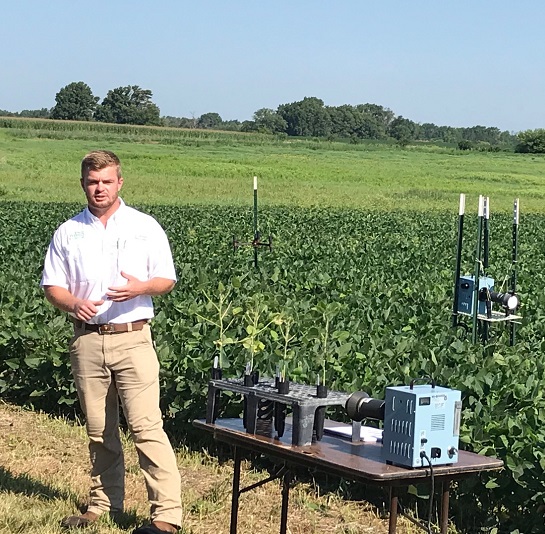News
Year 2: MU research still shows dicamba volatility

MU Masters student Shae Farrell at Bradford Research farm
University of Missouri researchers continue to find volatility of the newer dicamba products. M-U researchers are in their second year of studying soybean plants, placed 12 inches above the crop canopy, in fields that have been sprayed with dicamba during temperature inversions. Preliminary results show damages to the plants are highest in the first 24 hours they are placed in the sprayed fields but damages can occur up to 96 hours afterward. The plants have no direct contact with dicamba.
At the Pest Management field day at Bradford farms near Columbia, Missouri, MU weed scientist Dr. Kevin Bradley said they don’t know how the soybean plant leaves can be cupped up (damaged) if not for volatility of the products.
New label restrictions put in place last fall ban the spraying of dicamba during temperature inversion which occur mostly at night. Bradley says MU began its research before that became illegal and continues with the research.

Add Comment